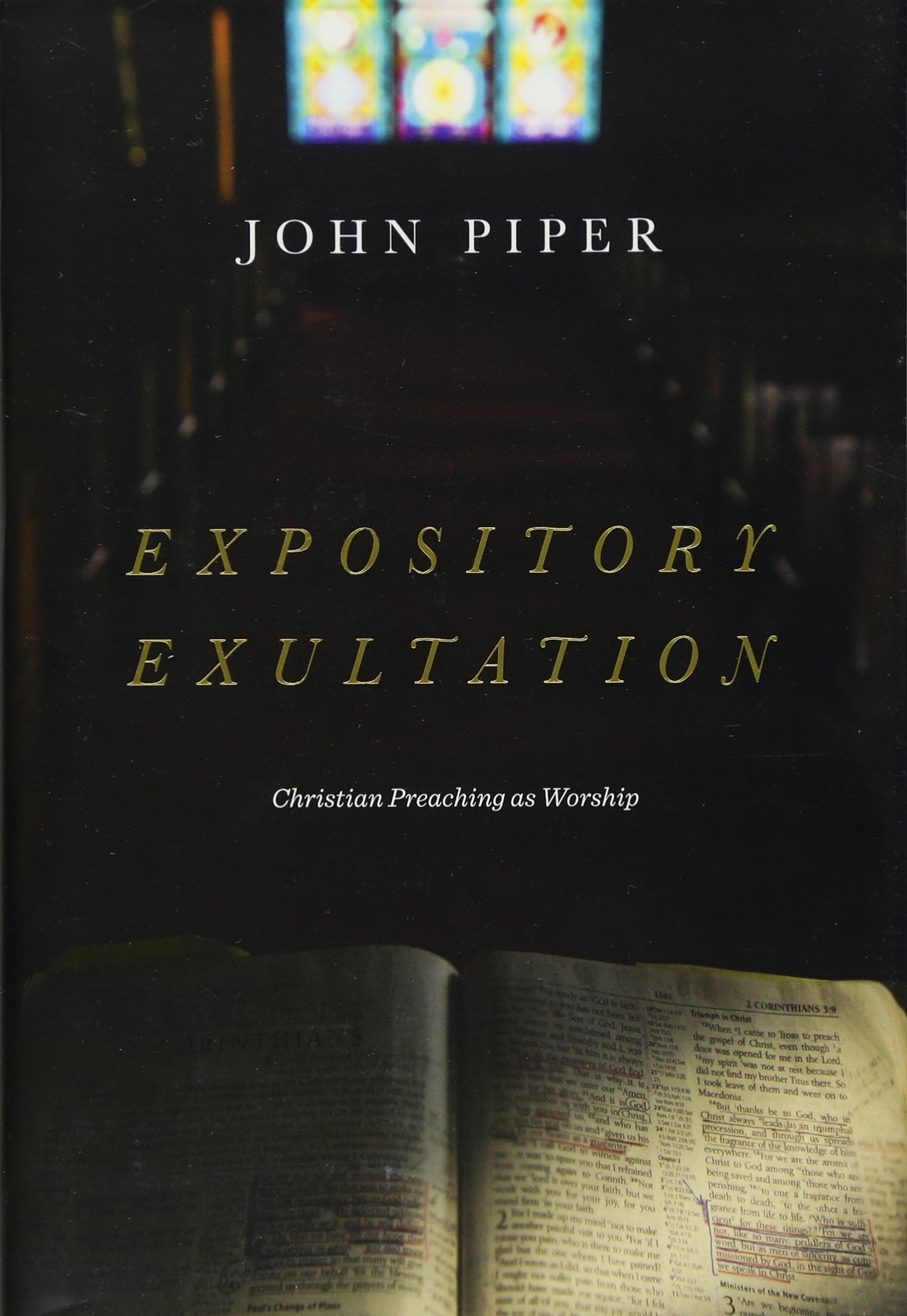A Book Review from Books At a Glance
By Ryan McGraw
Preaching has been, is, and always will be, the primary means that God uses to bring his elect to salvation through faith in Christ by his word and Spirit. This is true whether or not you agree with this statement. Preaching has continually come under attack and it often falls on hard times because of Satan’s zeal against God and his church. Yet the Lord has always raised up servants who maintain the Apostle Paul’s zeal for preaching Christ and him crucified in demonstration of the Spirit and of power. John Piper’s Expository Exultation falls into this rich and soul-nourishing biblical tradition. That being said, this book if difficult to commend because this reviewer struggles how to commend it adequately. Piper writes everything that this reviewer wishes he could communicate in every sermon he has preached and every book he has written with penetrating clarity, biblical power, and Christ-exalting passion. It is a must read for all who preach the word and for all who sit under preaching.
Piper’s primary argument is that preaching must be both exposition of Scripture and exultation in the God of Scripture (53). He writes with a characteristically memorable and gripping style and the book as a whole reads as a single continuous argument, with each chapter building explicitly on the previous ones. These features make a large book like this one both gripping and easy reading. The primary idea undergirding the book is that preaching is an act of corporate worship. This assertion can potentially help preachers persevere through hardship in preaching with joy in Christ and it can help readers learn to alter their expectations as they listen to sermons.
After establishing the fact that preaching is worship in two chapters, the next three chapters show why preaching is permeated with the Trinity and why it is integral to corporate worship. Chapters six through seven establish why preaching must be a supernatural act of the Spirit while chapters eight and nine augment this truth by showing how the Spirit works through the gifting of the preacher. This is solid biblical balance at its best.
Chapters nine and ten focus our attention on the first part of the book’s title by showing the necessity of wresting carefully with the text and words of Scripture in preaching. Chapters twelve through eighteen, which are the best part of this book in this reviewer’s opinion, emphasize the “exultation” part of the title by illustrating the realities of Scripture standing behind every biblical text, which preachers must learn to capitalize on and to incorporate into their sermons. The Trinity looms large in these chapters, because Piper’s exposition of his theme revolves around three questions corresponding to each person of the Godhead in this section. He argues that every sermon must aim at God’s glory, that it must flow from Christ and him crucified, and that it should result in Spirit wrought faith and obedience. The idea is that these things are the great biblical realities that stand behind every passage of Scripture, both Old Testament and New. He makes the vital point that it is not enough to expound a text faithfully. Preachers must exult the glory of the Father, through the Son, by the Spirit in the salvation of his people.
He adds importantly that preaching Christ does not mean running from the text to a rehashed version of the atonement (236). Instead, it means running from the cross to the truths and exhortations found in the text. This enables preachers actually to preach the text that is before them without either lapsing into monotonous retellings of the gospel message or into explaining biblical grammar while losing sight of the Bible’s message as a whole. Taking up his advice at this point would likely undercut most of the ongoing debates today that surround redemptive versus grammatical historical preaching. His three final chapters illustrate how to preach in this way while being faithful to the text of the Old Testament.
One does not have to agree with Piper’s theology at every point of in order to profit from this book. This reviewer could note that, for example, Piper does not adequately identify who preachers are in light of calling and ordination through the church, or that he does not sufficiently distinguish between public worship and the rest of life. Yet dismissing sound advice because we do not take all of it is folly. This author even saw a Facebook group recently entitled, “John Piper is not Reformed.” Is the intent here that he has nothing valuable to teach us? If we miss the vital message of this book because we disagree with its author at important points, then we will lose something vital to the health of the church and the spread of the gospel at the present day. Expository Exultation makes explicit what the best preachers in church history have known intuitively and devotionally and what all preachers and hearers need to learn clearly. The glory of the Triune God is the reality standing behind every biblical text and preaching and hearing the Bible should be an act of exultation in the glory of God. This book is not only worth reading. It is one of those rare books that is worth reading regularly, or at least until the Lord drives its message into our hearts.
Ryan M. McGraw
Greenville Presbyterian Theological Seminary
